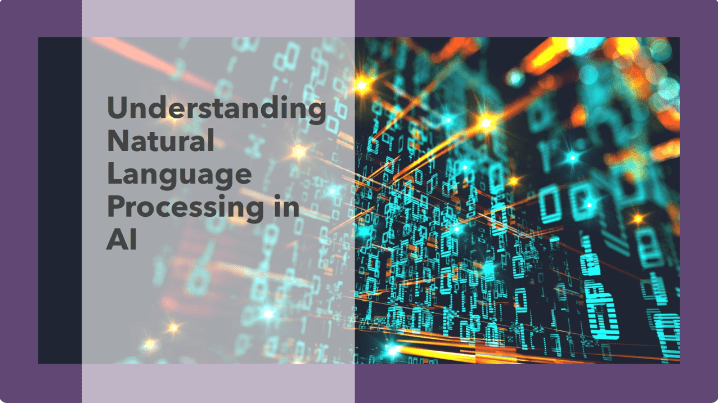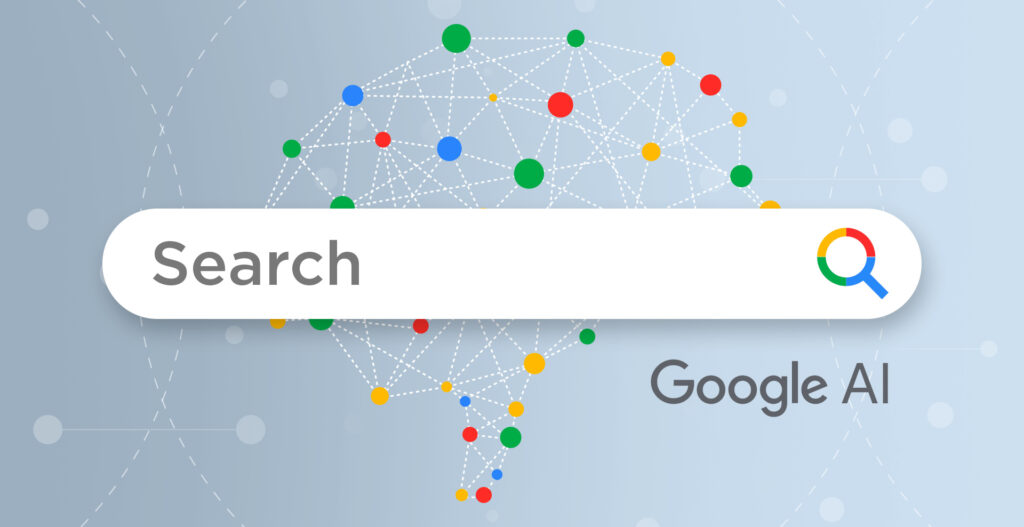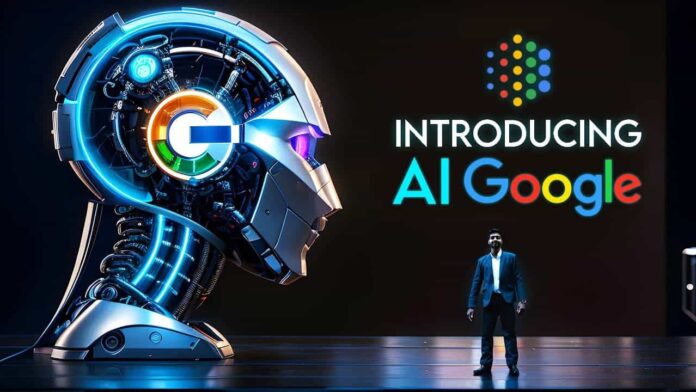In today’s digital age, keeping up with the changes in search engine optimization (SEO) can be difficult. Google’s advancements in AI, particularly the Search Generative Experience, have revolutionized how search results are generated. This shift has left many businesses and content creators struggling to adapt to the new standards.
However, Google’s AI-driven Search Generative Experience provides a solution by improving search accuracy, offering personalized results, and processing information in real time. Utilizing machine learning and natural language processing delivers more relevant results by understanding user intent.
To learn how to optimize your content for Google’s latest technology and stay ahead in SEO, read on to discover key features, optimization strategies, and future trends in AI-powered search.
Google’s Search Generative Experience
Transitioned based on the framework outlined in this paper, Google’s SE&G, known as search generative experience, is a massive step forward in search technology. This further improved AI-based system increases the precision and pertinence of the search results, allowing users to find what they seek more efficiently. Due to Google’s enthusiasm for enhancing search engine technology, efficient language interpretation algorithms have been created.
The Search Generative Experience is the conceptual solution to the challenges resulting from the increased complexity of searches. While moving further, it has come to a point where the user is searching for something precise, and here, Google’s AI comes into play. It is a revolution towards a natural and precise search where users can find what they want easily, making search engines the best in the world.
Key Features of Google’s AI-Powered Search Generative Experience
It’s important to note that the Search Generative Experience is filled with features that are intended to positively impact the user’s experience as well as the accuracy of the search. Another major advantage is the possibility of providing users with individual-oriented results. Google uses machine learning algorithms to study user habits and choices and thus averts the common one-size-fits-all search engine results for its users.
Another important characteristic is the possibility of information processing in the real-time mode. Information gathering and analysis from numerous sources is done remarkably well and quickly by Google’s AI, and the services provide real-time information. This is especially true for current trends or breaking news, an event feed, or any other dynamic search query. These features collectively make Google’s Search Generative Experience a powerful tool for users and businesses alike.
The Role of Machine Learning in Google’s Search-Generative Experience
It is fundamental with Search Generative Experience that machine learning forms the base of Google systems. This technology allows Google to qualify accurate results based on large inputs of data to pick out certain trends in the results. This is a form of machine learning because Google AI continually learns and adapts so that people can get better search results for any query they make to the search engine.
One of the core uses that can be made from machine learning in this regard is the capability to capture the intents of users. Google’s AI can understand what exactly the user wants, even if they have entered a vague or half-formed query, by using information from previous searches and the context. This ability to predict needs is actually a major improvement in search solutions since users can be presented with all the data they require.

Understanding Natural Language Processing in Google’s AI Technology
NLP is one of the core subtopics of artificial intelligence that Google heavily relies on. NLP helps Google’s filters to be able to comprehend text so that it can easily analyze queries. It does not operate just like the keyword search to look for particular words in any given text but interprets the content and contexts of individual queries.
Another aspect that can be considered as a part of Google’s NLP approach implies the highest level of synonyms and contextual analysis, not to mention the methods used to define human language peculiarities. This makes it possible for the search engine to understand various queries made by the users and suggest appropriate results regardless of the type of keywords used in the search. For the same reason, it has become easier for Google to provide customers with a more natural form of search.
Also Read About: Technology giants control the global security
Impact of Google’s AI on Search Engine Optimization (SEO)
The introduction of Google’s AI-powered Search Generative Experience has significantly impacted SEO practices. Traditional SEO techniques, which focus primarily on keyword optimization, are no longer sufficient. Instead, content creators must adopt a more holistic approach, focusing on high-quality content and user intent.
Semantic SEO techniques have become increasingly important. These techniques involve optimizing content around broader topics and themes rather than just individual keywords. By understanding the relationships between words and concepts, Google’s AI can provide more relevant search results. This shift towards semantic SEO requires content creators to produce well-researched and comprehensive content that addresses user needs more effectively.
Benefits of Google’s Search-Generative Experience for Users and Businesses
Google’s Search Generative Experience offers numerous benefits for both users and businesses. For users, the enhanced search accuracy and personalized results lead to a more satisfying browsing experience. Users can find relevant information more quickly and easily, improving their overall interaction with the search engine.
For businesses, the benefits are equally significant. By optimizing their content for Google’s AI-driven search, businesses can increase their visibility and attract more traffic to their websites. This can lead to higher engagement rates and, ultimately, greater revenue. Additionally, businesses that stay ahead of the curve by adopting these new SEO practices can gain a competitive edge in their industry.
How to Optimize Your Content for Google’s AI-Powered Search
To optimize content for Google’s AI-powered search, content creators must focus on several key strategies. First, it is essential to conduct thorough keyword research and understand the intent behind search queries. This involves identifying the questions and problems that users are trying to solve and creating content that addresses these needs.
Incorporating semantic SEO techniques is also crucial. This means creating content that covers broader topics and themes, using related keywords and phrases to provide a comprehensive view of the subject. Additionally, leveraging entities and word relations can help improve the relevance of the content, making it more likely to rank well in search results.

Future Trends in AI and Search: What to Expect from Google
New possibilities of using AI and search technology in the future are encouraging. The company’s engineers are constantly releasing new AI features of the search engine that are expected to make the search experience even more efficient and smooth. Among such opportunities, it is worth identifying the growing popularity of voice search, which uses such techniques as natural language processing.
The other spot that increased is the incorporation of visual search capabilities. This technology enables users to search for a particular item through images, bringing in a more engaging approach than the conventional text-based search. As AI technology progresses in the future, more advanced features are likely to be developed and included in Google that will further revolutionize search engine use.
Case Studies
Some businesses have effectively found new ways of taking advantage of Google’s search generative experience, thus expanding their online presence. For instance, a leading online store aimed to enhance the effectiveness of its content by employing semantic search and users’ purpose. These approaches resulted in a drastic increase in the site’s visits through organic search engine result pages and conversion rates.
The second example is also connected with Google’s AI solutions, which are developed by a digital marketing agency that has managed to enhance its clients’ ranking. By implementing machine learning and natural language processing techniques, this agency was able to produce much more relevant content and thereby achieve higher search result rankings for this client’s site. These case studies highlight the potential benefits of adopting Google’s Search Generative Experience.
For More Articles Click the: Ezinee.co.uk
FAQ’s
What is Google’s Search Generative Experience?
Google’s Search Generative Experience is an AI-driven enhancement to their search engine, designed to provide more accurate and personalized search results. It leverages advanced machine learning and natural language processing techniques to understand user queries better and deliver relevant information in real-time.
How does Google’s AI improve search accuracy?
Google’s AI improves search accuracy by analyzing vast amounts of data to understand the context and intent behind user queries. Using machine learning algorithms, it can identify patterns and relationships between words, providing more precise and relevant search results tailored to individual users’ needs.
What role does natural language processing play in Google’s AI technology?
Natural language processing (NLP) plays a crucial role in Google’s AI technology by enabling the search engine to understand and interpret human language. NLP helps in analyzing the meaning, context, and intent behind search queries, allowing Google to deliver more accurate and contextually relevant search results.
How can businesses benefit from Google’s Search Generative Experience?
Businesses can benefit from Google’s Search Generative Experience by gaining increased visibility and engagement from more accurate and personalized search results. This can lead to higher website traffic, improved user experience, and a competitive advantage in their industry, ultimately driving growth and success.
What are the key features of Google’s Search Generative Experience?
Key features of Google’s Search Generative Experience include enhanced search accuracy, personalized search results, and real-time information processing. These features enable Google to deliver more relevant and context-aware search results, improving the overall search experience for users.
How does machine learning contribute to Google’s Search Generative Experience?
Machine learning contributes to Google’s Search Generative Experience by analyzing and learning from vast datasets to identify patterns and improve search algorithms. This allows Google to continuously refine and enhance the accuracy and relevance of search results, adapting to changing user behaviours and preferences.
What changes in SEO best practices are needed for Google’s AI-driven search?
For Google’s AI-driven search, SEO best practices now require a focus on high-quality content, semantic SEO techniques, and understanding user intent. It is essential to incorporate relevant keywords naturally, use structured data, and create content that addresses the needs and questions of users to rank higher in search results.
What future trends can we expect from Google’s AI technology in search?
Future trends from Google’s AI technology in the search include further advancements in personalized search results, more sophisticated natural language understanding, and increased use of AI-driven features like voice search and visual search. These trends will continue to shape how users interact with search engines and find information online.
How can content creators optimize for Google’s AI-powered search?
Content creators can optimize for Google’s AI-powered search by focusing on creating high-quality, relevant content that addresses user intent. Utilizing semantic SEO techniques, incorporating structured data, and staying updated with the latest SEO trends and Google updates will help in achieving better search rankings.
What are some success stories related to Google’s Search Generative Experience?
Some success stories with Google’s Search Generative Experience include businesses that have seen increased website traffic and engagement by optimizing their content for AI-driven search. By leveraging Google’s advanced search features and focusing on user intent, these businesses have gained a competitive edge and achieved significant growth in their online presence.



